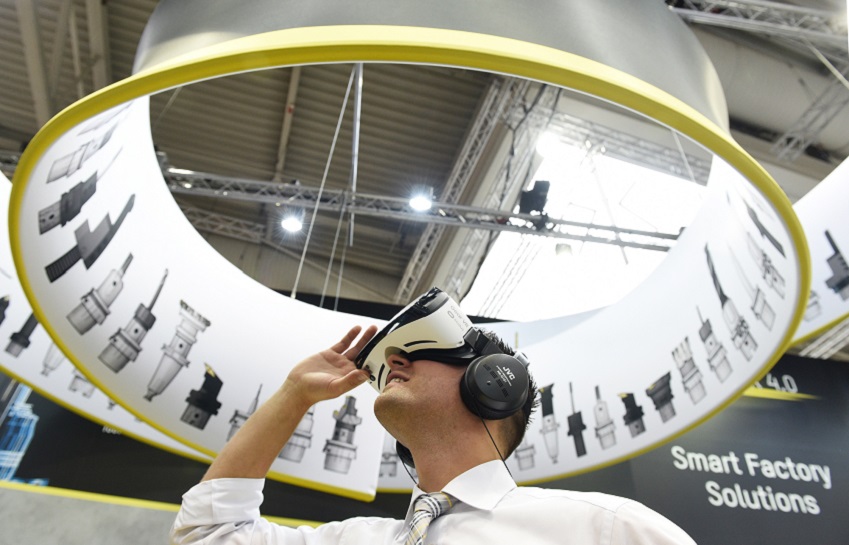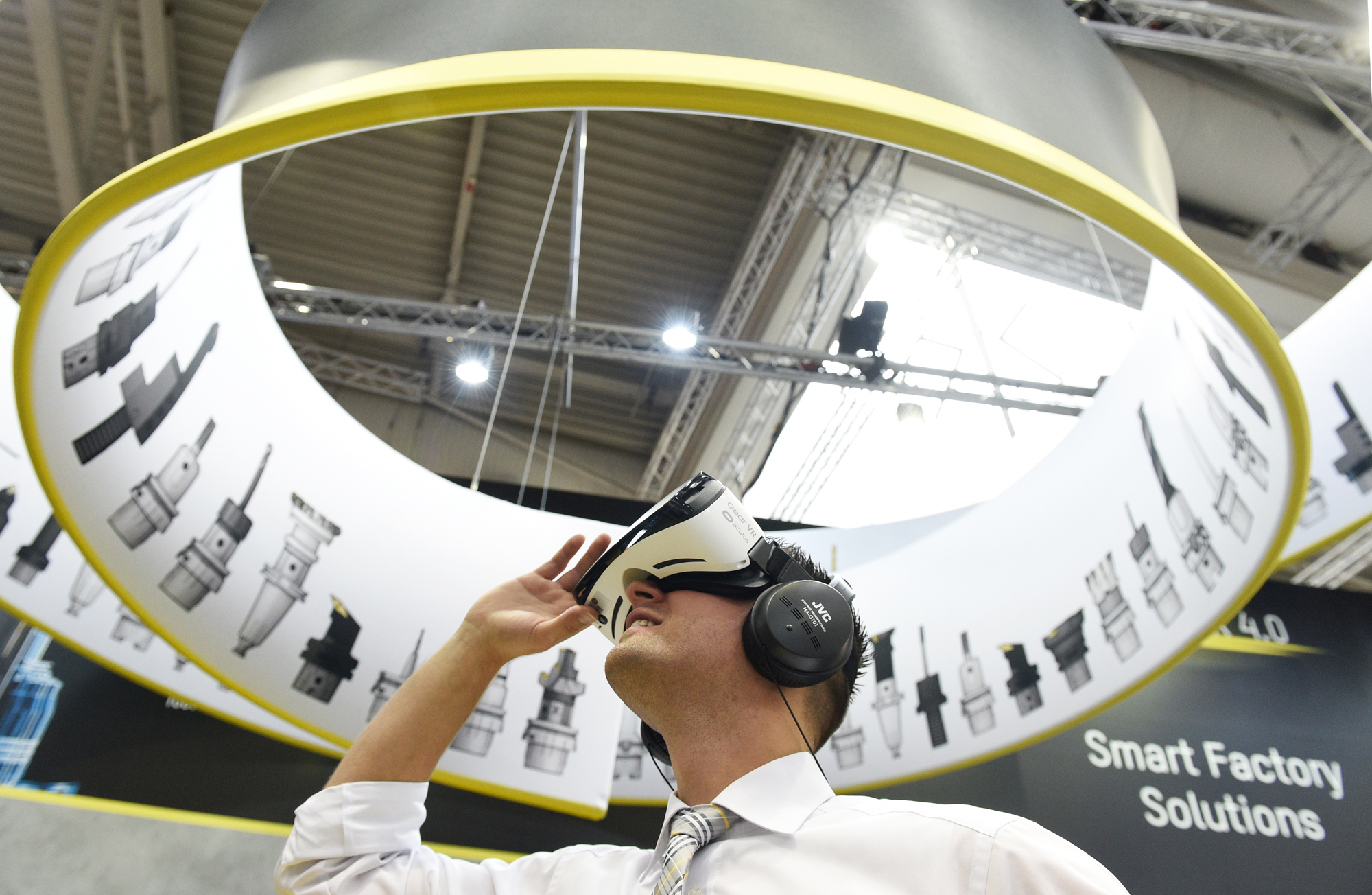New technologies kindling future business
EMO Hannover 2019 to devote separate forum to future technologies. The term “Industrial Internet of Things” (IIoT) covers a whole range of new technologies that open up innovative production possibilities. This will provide the basis for new areas of business. The importance of IIoT should not be underestimated and it will be accorded the attention it deserves at EMO Hannover 2019 in the Forum New Technologies – Future Opportunities. Over the five days, leading industrial experts and scientists will be giving talks in Hall 9 on future technologies which have the potential to develop into important pillars of metalworking. Participation is free of charge, the talks will be given in English.

The Industrial Internet of Things (IIoT) embraces concepts such as additive procedures, machine learning, artificial intelligence, platform economics, umati, OPC UA and 5G. But what do these buzzwords actually mean? And how can these technologies boost value creation in the manufacturing sector?
Practical networking at the machine and business levels
Finding a secure way of exchanging standardised data and information at all levels in the networked world, from sensors up to IT companies, is the best way of reducing engineering costs and increasing security. With regard to data exchange, the market has opted for the platform-independent OPC UA protocol as the standard framework for industrial interoperability. Why is that? And how can existing machines without OPC UA that have already been delivered be connected? The forum will provide an overview of the current situation and a roadmap of OPC UA on Tuesday afternoon. In addition, experienced entrepreneurs will show how cyber security and assistance systems can pave the way for successful, secure and user-friendly IIoT applications.
All experts agree that a key element of future business models will be the creation of value through digital services. They will enable machine tool builders to meet their customers’ future requirements and to hold their own among the international competition. A term that has emerged in this respect is the “platform economy”. Entrepreneurs who have already gained experience in this field will report on scalable digital platforms and on how manufacturing companies can benefit from subscription-based business models.
umati and 5G-based connectivity
Connectivity must be possible not only from machine to machine, but along the entire value chain if the immense potential for industrial production is to be leveraged. Experts from international companies will discuss how Industry 4.0 and IIoT can be made reality throughout German industry. Topics will include data performance and reliable radio communication. In addition, the “5G. Make manufacturing smart” forum will be providing information specifically about 5G in the industrial environment. The “5G Alliance for Connected Industries and Automation”, or 5G-ACIA for short, will be coordinating the forum. It is the main global 5G design forum for industrial applications.
Finally, the universal machine tool interface umati is set to bring about major advances in Industry 4.0. What began as an initiative of the VDW (Verband Deutscher Werkzeugmaschinenfabriken – German Machine Tool Builders’ Association) has developed into a globally supported movement to ensure simple yet secure links between machine tools and IT systems in the production environment. At the forum on Friday, the audience will be able to discover the latest technical developments, find out what prospects the companies which have been involved in the initiative from the beginning see in umati, and learn how other companies can participate.
In addition to the talks on connectivity, EMO Hannover will also feature the first 5G showcase – by Ericsson (Stockholm), Makino Europe (Hamburg), and the Fraunhofer Institute for Production Technology (IPT). Deploying 5G technology, a robot will take tools from a shelf, measure them and load them into a machine using a specially developed driverless transport system. The data is transferred extremely quickly between the central control unit and the robot via 5G. Visitors to the showcase can find out how to integrate 5G processes into their production systems at the Makino stand (B36) in Hall 12.
Artificial Intelligence and 3D Printing
The talks on Tuesday morning will show that artificial intelligence (AI), and machine learning (ML) in particular, are moving now towards practical implementation. The main question being addressed is how companies can supplement automated production with ML or AI methods. The speakers will also present concrete examples, such as voice-controlled AI-based machine operating systems or the prevention of chatter.
A practical ML application for planning, scheduling and operations management will also be presented.
Naturally there will also be talks on additive processes which have already made their way into metal processing, especially in the aerospace and medical technology sectors. Further fields of application will also open up due to the rapid technical advances and the research into ever new materials for industrial 3D printing. But how can companies start to integrate additive processes into their production today? What special features have to be considered? All will be revealed to the audience on Wednesday and Thursday.
The open forum with its half-day topic blocks will be held on Stand I24 in Hall 9.
Author: Gerda Kneifel, VDW
Size: around 5,513 characters including blanks
Downloads


